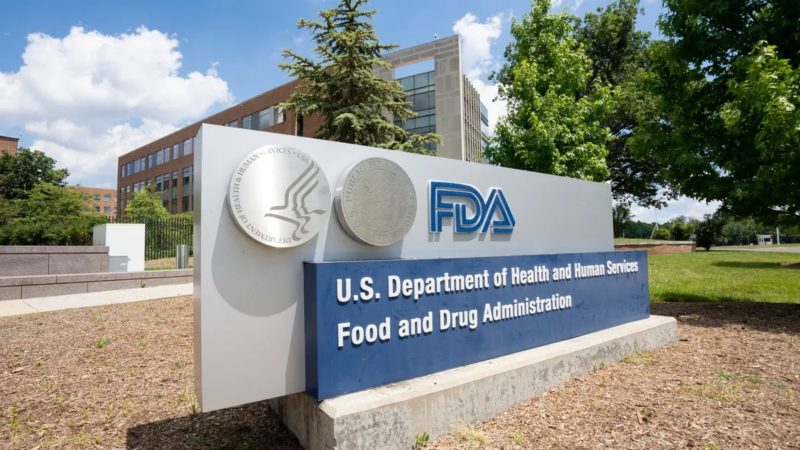The Essential Guide to Weight Loss Vitamins: What You Need to Know


 Shop our The Lean
Shop our The Lean 
In the pursuit of weight loss, the role of vitamins often remains underexplored. As we navigate through an ocean of dietary advice and weight management strategies, understanding the specific contributions of vitamins to metabolism, energy levels, and appetite control is paramount.
This guide aims to demystify the complex interplay between essential vitamins and weight loss, offering insights into how nutritional deficiencies can undermine your efforts and how addressing these can propel you towards your goals.
Join us as we uncover key vitamins that are critical in this journey, providing a foundation for a more informed and effective weight management strategy.
In a Nutshell
Vitamins B12, D, and minerals like iron are critical in boosting metabolism and energy for effective weight loss.
- Adequate vitamin D levels can help control appetite and reduce the risk of obesity by regulating body fat storage.
- Magnesium plays a pivotal role in energy production, supporting sustained physical activity and calorie burning.
- Addressing nutritional deficiencies through diet or supplements can significantly enhance weight management efforts.
Understanding Vitamin Basics
Vitamins, essential micronutrients that the body needs in small amounts, play a crucial role in maintaining health and supporting metabolic processes, including weight management. These organic compounds are vital for the proper functioning of the body, as they aid in the synthesis of enzymes, hormones, and other substances essential for growth, reproduction, and overall well-being. Unlike macronutrients such as carbohydrates, proteins, and fats, which provide energy, vitamins do not supply calories. Instead, they facilitate the biochemical reactions that release energy from food, making them indispensable for energy metabolism.
The human body requires a diverse range of vitamins, each serving unique functions. Some vitamins, like vitamin D, are produced by the body when exposed to sunlight, while others must be obtained from dietary sources or supplements. The necessity for a balanced intake of vitamins underscores the importance of a varied and nutritious diet. Vitamins are categorized into fat-soluble and water-soluble groups, with each group being absorbed, transported, and stored differently within the body. This classification also influences their dietary sources and the risk of deficiency or toxicity, highlighting the need for a well-informed approach to vitamin consumption for optimal health and weight management.
By signing up, you consent to receive For Youth emails
Get The Latest On Longevity Delivered To Your Inbox.
Key Vitamins for Metabolism Boost
Building on the foundational understanding of vitamin basics, it’s crucial to highlight specific nutrients that significantly enhance metabolic rates and contribute to weight management. Among these, Vitamin B12 stands out for its role in supporting the metabolism of every cell in the body, particularly in aiding the conversion of food into usable energy. This makes it a critical component for anyone looking to boost their metabolic rate.
Similarly, Vitamin D has been linked to improved metabolic health, with studies indicating its role in regulating blood sugar levels and enhancing the body’s sensitivity to insulin. This can be particularly beneficial for those aiming to lose weight, as improved insulin sensitivity is associated with a more efficient metabolic rate.
Iron also plays a pivotal role in metabolism enhancement. It is essential for the production of hemoglobin, which helps in the transportation of oxygen to the body’s cells, enabling them to burn fat more effectively. Thus, adequate iron levels are vital for sustaining a healthy metabolic rate and facilitating weight loss.
Incorporating these vitamins into your diet can significantly aid in boosting your metabolism, making them key components in any weight management plan.
Energy-Enhancing Vitamins
Transitioning to the realm of energy enhancement, certain vitamins play a pivotal role in elevating energy levels and improving overall vitality. These nutrients are critical not just for metabolic processes but also for empowering the body to maintain high energy levels necessary for both daily activities and effective weight loss efforts. Incorporating these vitamins into your diet can significantly impact your energy levels, thereby supporting your weight loss journey by enabling more active lifestyles.
- Vitamin B12: Crucial for energy production, it helps transform the food you eat into usable energy.
- Vitamin D: Often associated with bone health, it also plays a significant role in energy levels and muscle function.
- Iron: Not a vitamin but an essential mineral that helps in the production of energy from nutrients and is vital for transporting oxygen in the blood.
- Magnesium: Involved in hundreds of biochemical reactions in the body, including energy creation, it helps convert food into energy.
Incorporating these vitamins and minerals into your diet, either through food or supplements, can help ensure your body has the required nutrients to sustain energy levels throughout the day, making it easier to stay active and burn calories.
Vitamins for Appetite Control

 Shop our The Lean
Shop our The Lean 
Managing appetite is a critical component of any successful weight loss strategy, and certain vitamins have been shown to play a key role in this process. Vitamins, though often overlooked in the context of appetite control, can indirectly influence hunger and satiety signals, thereby aiding in weight management.
Vitamin D, for instance, has been linked to weight loss and appetite control. Research suggests that adequate levels of vitamin D in the body may be associated with reduced weight and a lower incidence of obesity. This connection could be due to vitamin D’s role in the regulation of leptin, a hormone that signals satiety to the brain and helps in controlling food intake.
B vitamins, including B6 and B12, are also essential for managing appetite. They aid in the metabolism of proteins, fats, and carbohydrates, providing the body with energy from food. This efficient energy use can help prevent unnecessary snacking or overeating due to feelings of fatigue or energy slumps.
Moreover, incorporating a balanced diet rich in these vitamins alongside a healthy lifestyle can enhance overall weight loss efforts. While vitamins alone won’t directly suppress appetite, their role in supporting metabolism and energy levels can indirectly help control food intake, making them valuable tools in the journey toward achieving and maintaining a healthy weight.
Addressing Nutritional Deficiencies
To effectively support weight loss efforts, addressing nutritional deficiencies is a crucial step in ensuring the body functions optimally. Nutritional deficiencies can sabotage weight loss by slowing down metabolism, increasing cravings, and reducing energy levels, making it harder to maintain a healthy lifestyle. By ensuring your body has all the nutrients it needs, you can enhance your weight loss journey significantly.
Here are key strategies to address and prevent nutritional deficiencies:
- Incorporate a Balanced Diet: Focus on a variety of whole foods, including fruits, vegetables, lean proteins, and whole grains, to naturally obtain a wide range of essential nutrients.
- Consider High-Quality Supplements: If you’re unable to meet your nutritional needs through diet alone, high-quality supplements can help fill the gaps.
- Regular Nutrient Level Checks: Periodic blood tests can help identify any deficiencies early, allowing for timely intervention.
- Consult a Healthcare Professional: Before making any significant dietary changes or starting new supplements, consult with a healthcare provider to ensure they’re suitable for your individual health needs.
Addressing nutritional deficiencies not only supports weight loss but also enhances overall health and well-being, making it a critical component of any weight management plan.
For Youth – Learn More About Us
For Youth demystifies the science of longevity, making it accessible to everyone. With the view of considering aging as a “disease” that can be cured, we aim to help individuals slow down or even reverse aging at a cellular level, ultimately leading to a healthier and longer life.
Aging is the underlying cause of various health issues, ranging from minor problems like wrinkles to severe diseases like Alzheimer’s or cancer. By slowing down the aging process, one can significantly improve their overall health and well-being.
For Youth offers a biological age test and a range of science-backed, lab-tested, and carefully sourced supplements, such as NMN or Resveratrol, to help you monitor and counteract the effects of aging.
The Lean – Green Tea + Beanblock™

Description: (The Lean – Green Tea + Beanblock™)
Enhance your metabolism without the need for caffeine: Introducing The Lean, uniquely formulated with Green Tea Phytosome™ and Beanblock™ to support effective weight management and promote healthy aging.
Experience a powerful metabolism boost with two scientifically-backed natural compounds, skillfully combined in a single daily dose utilizing advanced Phytosome™ technology for enhanced absorption.
– Promotes lower blood sugar levels
– Limits carbohydrate absorption
– Stimulates increased fat burning
– Helps reduce appetite
Our innovative formula merges the metabolic benefits of green tea catechins with a specialized white kidney bean seed extract, fostering metabolic health and aiding in healthy aging.
Due to their complex nature, plant extracts such as those from green tea can be challenging to absorb since they don’t easily dissolve in our digestive system. Our Phytosome™ technology addresses this issue by doubling absorption efficiency.
Each capsule of The Lean delivers 300 mg of Greenselect™ Phytosome™, a combination of decaffeinated green tea leaf extract (Camellia sinensis) and sunflower phospholipids, along with 200 mg of Beanblock™, a white kidney bean seed extract (Phaseolus vulgaris).
Directions & Cautions
Recommended usage:
-1-2 capsules daily
-Consume with food and water
-Ideally with the largest meal(s) of the day.
Cautions: Green tea extracts are a source of the potent antioxidant EGCG. Each serving of The Lean provides 40 mg of EGCG. To avoid surpassing the recommended daily intake of 800 mg of EGCG, refrain from using additional green tea products. This product is not intended for people under 18 years of age. Do not use it if you are pregnant or breastfeeding. Consult a healthcare professional before starting any dietary supplement regimen.
Origin and Production Details
We’re committed to utmost transparency.
-Sourced in Italy
-Manufactured in Italy
-Encapsulated in France
-Packaged in Singapore
-Dispatched from Singapore
-Discover the complete story here.
Final Word
In conclusion, understanding the role of vitamins in weight loss is a game-changer for anyone looking to manage their weight effectively. The intricate dance between vitamins like B12, D, iron, and magnesium and our metabolic processes not only facilitates a healthier metabolism but also boosts energy levels and helps regulate appetite. This guide has navigated through the essentiality of incorporating a balanced diet or quality supplements to combat nutritional deficiencies and optimize weight loss efforts. But our journey towards healthier living doesn’t stop here.
ForYouth stands as a beacon for those eager to extend the principles of healthy living into the future, emphasizing not just weight management but the broader horizon of aging gracefully. With a revolutionary approach that views aging as a curable “disease,” ForYouth empowers individuals to take charge of their health trajectories, offering insights and solutions to slow down or even reverse aging on a cellular level. This alignment with wellness and longevity speaks directly to those who are in the pursuit of weight management as part of a larger goal of achieving a healthier, more vibrant life.
Incorporating products like The Lean – Green Tea + Beanblock™ into one’s regimen exemplifies the fusion of targeted weight management solutions with the overarching aim of promoting healthy aging. This product, with its sophisticated composition and absorption technology, underscores the importance of choosing supplements that not only support weight loss efforts but are also in tune with the body’s overall well-being.
In the vast ecosystem of health and wellness, ForYouth reminds us of the importance of viewing our health goals within the context of a longer, healthier life. As we continue to uncover the layers of how nutrients and supplements like those discussed can support our weight loss journeys, let us also keep an eye on the horizon – where longevity becomes the ultimate reward of our healthy living choices.
By embracing the science-backed approaches of ForYouth, individuals are not merely tackling weight loss; they are setting the stage for a life filled with vitality, resilience, and an enduring zest for life.
FAQ
1. What are weight loss vitamins?
Weight loss vitamins are nutrients that support various body functions, including metabolism, energy production, and fat burning, thereby potentially aiding in weight management. They don’t directly cause weight loss but may provide necessary support to your efforts.
2. Can vitamins alone help me lose weight?
No, vitamins alone cannot cause weight loss. They should be part of a balanced diet and healthy lifestyle that includes regular physical activity. Effective weight loss usually results from a combination of diet, exercise, and appropriate supplementation.
3. What vitamins are considered beneficial for weight loss?
Several vitamins and minerals are thought to support weight loss in various ways. Some key examples include:
- Vitamin D: Helps regulate hunger and appetite.
- B Vitamins: Essential for energy metabolism.
- Vitamin C: Associated with lower body mass.
- Iron and Magnesium: Support muscle function and energy levels, crucial for an active lifestyle.
4. How does Vitamin D aid in weight loss?
Vitamin D has been linked to weight loss in several studies. It may help by regulating appetite and potentially influencing fat storage in the body. Additionally, adequate levels of Vitamin D support healthy muscle function, important for an active lifestyle that aids in weight loss.
5. Are there any risks associated with taking weight loss vitamins?
While vitamins are generally safe, excessive intake (far beyond the recommended daily amount) can lead to negative side effects and health issues. It’s essential to follow recommended dosages or consult with a healthcare professional before starting any new supplement regimen, especially if you have existing health conditions or are taking other medications.
6. How can I ensure I’m getting enough vitamins for weight loss?
The best way to ensure you’re getting enough vitamins is through a balanced diet rich in fruits, vegetables, lean proteins, and whole grains. If you suspect you’re not getting enough nutrients from your diet alone, consider a multivitamin supplement but consult a healthcare provider first.
7. Are there any specific diets that help with vitamin intake for weight loss?
Diets that emphasize whole foods over processed foods, such as the Mediterranean diet or plant-based diets, can be rich in the vitamins and minerals that support weight loss efforts. These diets encourage the consumption of a diverse range of nutrient-rich foods.
8. Should I consider taking a weight loss supplement?
While some supplements can support weight loss, it’s important to approach them with caution. Many supplements market themselves as miracle weight loss solutions but lack scientific backing. Always research thoroughly and consult a healthcare professional before starting any supplement, especially those marketed for weight loss.
9. How much of these vitamins do I need for weight loss?
There is no one-size-fits-all answer, as individual needs can vary based on factors like age, sex, weight, and overall health. Refer to established Dietary Reference Intakes (DRIs) or consult with a nutritionist to understand your specific needs.
10. Where can I get reliable information about vitamins for weight loss?
Reliable sources for nutritional information include healthcare providers, registered dietitians, and reputable health organizations’ websites. Be wary of sources that sell supplements or offer extreme dietary advice without scientific backing.








